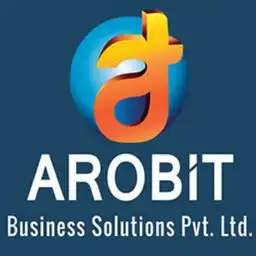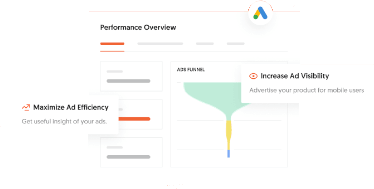Enterprise Resource Planning (ERP) software has become indispensable for any business looking to optimize its operations, improve productivity, and make the best decisions. The landscape of ERP has never been as fast-changing as it's going to be in 2025. Increasingly, varying solutions, depending on the requirements of a business, are being offered. More than 70% of organizations even have some form of an ERP system with their core processes, as is evident from the most recent statistics. The top five ERP software in India that are going to stand out in 2025 are discussed further in this blog, by describing their features, benefits, and suitability to different types of businesses.
Best ERP Software in India
1. Microsoft Dynamics 365 Business Central
Overview:
Dynamics 365 Business Central is Microsoft's premier business management solution, specifically crafted for small and mid-sized businesses. One single platform: Unify finance, sales, service, and operations capabilities.Key Features:
Integration with Microsoft Products: This integrates smoothly with Office 365 and other Microsoft applications.
Customizable Dashboards: Real-time insights through customizable dashboards.
AI Capabilities: It uses AI for predictive analytics and decision support.
Pro:
User-friendly interface that is easy to navigate.
Strong integration capabilities enhance productivity.
Scalable solution, so it grows with your business.
Cons:
May need to be adapted for specific application requirements.
More licenses will be needed for larger groups.
Best For:
Mid-sized businesses looking for an adaptable ERP solution to be easily integrated with currently existing Microsoft tools.
2. Oracle Fusion Cloud ERP
Overview:
Oracle Fusion Cloud ERP is a powerful cloud-based application designed for the more complex functionalities demanded by larger organizations from their multi-departmental operations. Key Features:
Comprehensive Financial Management: Provides enhanced reporting and governance capabilities.
Supply Chain Management: Gives the solution to effectively manage complicated supply chains.
AI and Machine Learning: Leverages AI to make business processes more efficient and automate mundane tasks.
Pros:
Highly flexible for any specific business requirement.
Strong analytics capabilities to support informed decision-making.
Superb support for global operations and compliance.
Cons:
The complexity may necessitate considerable training and adjustment time.
More expensive than the other ERP solutions.
Best For:
Huge enterprises that require an integrated solution to handle intricate operations across multiple locations.
3. SAP S/4HANA
Overview:
SAP S/4HANA is an enterprise-class ERP system with powerful processing capabilities for handling large volumes of data as well as real-time analytics. It is an effort to help large enterprises align their operations. Key Features:
Real-Time Analytics: Delivers immediate data processing for instant insights
Sector-Specific Solutions: Developed functionalities that are specific only to manufacturing, retail, or healthcare.
Functionality Interoperable: The ability to integrate with other SAP products and third-party applications.
Pros:
Strong features for bigger businesses.
Strong focus on compliance and regulatory requirements.
Highly adaptable to the changed business environment.
Cons:
It's resource- and time-consuming.
This solution requires constant maintenance and support from IT.
Best For:
Highly powerful ERP solutions looking for an orientation towards large companies and toward an industry.
4. Oracle NetSuite
Overview:
It is Oracle NetSuite—a cloud-based, native ERP intended for small and mid-sized businesses to give real-time insight into performance across departments. Key Features:
Integrated Financial Management: Full packages of financial control, including budgeting and forecasting.
Customer Relationship Management (CRM): Inbuilt CRM functionalities enhance customer interaction.
E-commerce Functionality: Enables business-to-consumer smooth online sales channels.
Pros:
Quick implementation process compared to traditional ERPs.
User-friendly interface with minimal training.
Strong in reporting capabilities.
Cons:
May lack some important advanced features found in broader ERP systems.
Customisation options are perhaps not as versatile as the competitors.
Best For:
Small to mid-sized companies looking for an all-in-one cloud solution that offers quick deployment and ease of use.
5. Infor CloudSuite
Overview:
Infor CloudSuite is a suite available as a cloud-based ERP, delivering industry-specific functionality across numerous industries such as manufacturing, healthcare, and retail. Key Features:
Industry-Specific Functionality: Modules tailored to meet the needs of specific industries.
User-Friendliness: A well-designed interface greatly enhances the user experience and adoption rates.
Robust Analytics Tools: Advanced analytics enable understanding of operational efficiency.
Pros:
A strong focus on industry-specific needs enhances relevance.
Versatile deployment options accommodate businesses of all sizes.
Customer service and training resources are exceptional.
Cons:
Some users report difficulties integrating the system.
Limited third-party app integrations compared with competitors.
Best For:
Organizations in the space of manufacturing or healthcare are seeking 'siloed' ERP solutions specifically targeted towards their operations.
Comparison Table of Top 5 ERP Software in India for 2025
FAQs
Q1. What software is used for ERP?
Some of the best ERP software in India are Microsoft Dynamics 365, Oracle NetSuite, SAP S/4HANA, and Infor CloudSuite, among others, which aims to bring together the core business functions into a single system. The enterprise resource planning products have the use of different business functions' management.
Q2. Are ERP and SAP the same?
No, while SAP is one of the leading ERP software suppliers—for example, SAP S/4HANA—"ERP" generally refers to any enterprise resource planning software from other vendors as well, including Oracle, Microsoft, Infor, and so on; not all ERP systems are SAP products.
Q3. What are the 5 components of ERP?
The five components usually include:
- Financial Management
- Supply Chain Management
- Customer Relationship Management (CRM)
- Human Resource Management
- Inventory Management
They work hand in glove together within an enterprise resource planning ERP software system to improve overall efficiency.
Q4. Why is ERP required?
Operations will be streamlined through the ERP systems to bring about improved accuracy in the data, increase collaboration between departments, reduce operational costs, and enable real-time insight into business performance. Integration helps businesses make intelligent decisions based on accurate data produced from enterprise resource planning products.
Q5. Is AccountMate an ERP system?
This is true; AccountMate is an ERP system due to the reasons that it offers integrated solutions of accounting and business management functions for small to mid-size business enterprises.
Q6. What is new in business ERP new?
Business ERP new describes the recent developments in enterprise resource planning systems. Here, advancements in modern technologies like cloud computing, AI, machine learning, and improved interfaces come together to deliver user responsiveness to changes in business more significantly than traditional systems.
Q7. What is ERP system software?
ERP system software refers only to applications used within the defined Enterprise Resource Planning framework that allows for the management of core business processes ranging from finance and supply chain management to human resources and many more.
Conclusion
The selection of the correct ERP software is key in business, especially for those looking to improve their operational efficiency and decision-making. Partnering with skilled ERP software developers in India can significantly enhance implementation success. As highlighted earlier, the five solutions—Microsoft Dynamics 365 Business Central, Oracle Fusion Cloud ERP, SAP S/4HANA, Oracle NetSuite, and Infor CloudSuite—represent modern ERP technology in 2025. They have different features depending on the size and nature of a business; hence a call for analysis to compare specific needs before settling on any one solution. ERP software companies in India can also play a pivotal role in helping businesses identify and implement the right solution. Knowing that every single ERP solution will be available to businesses for the year 2025 allows them to align their decisions towards their strategic goals and operational requirements using effective ERP tools and systems customized for those different challenges.








